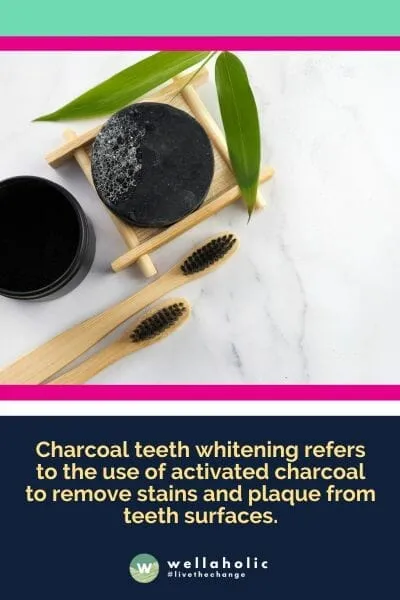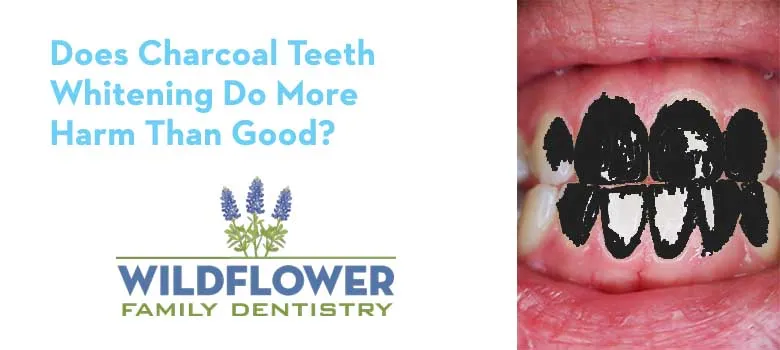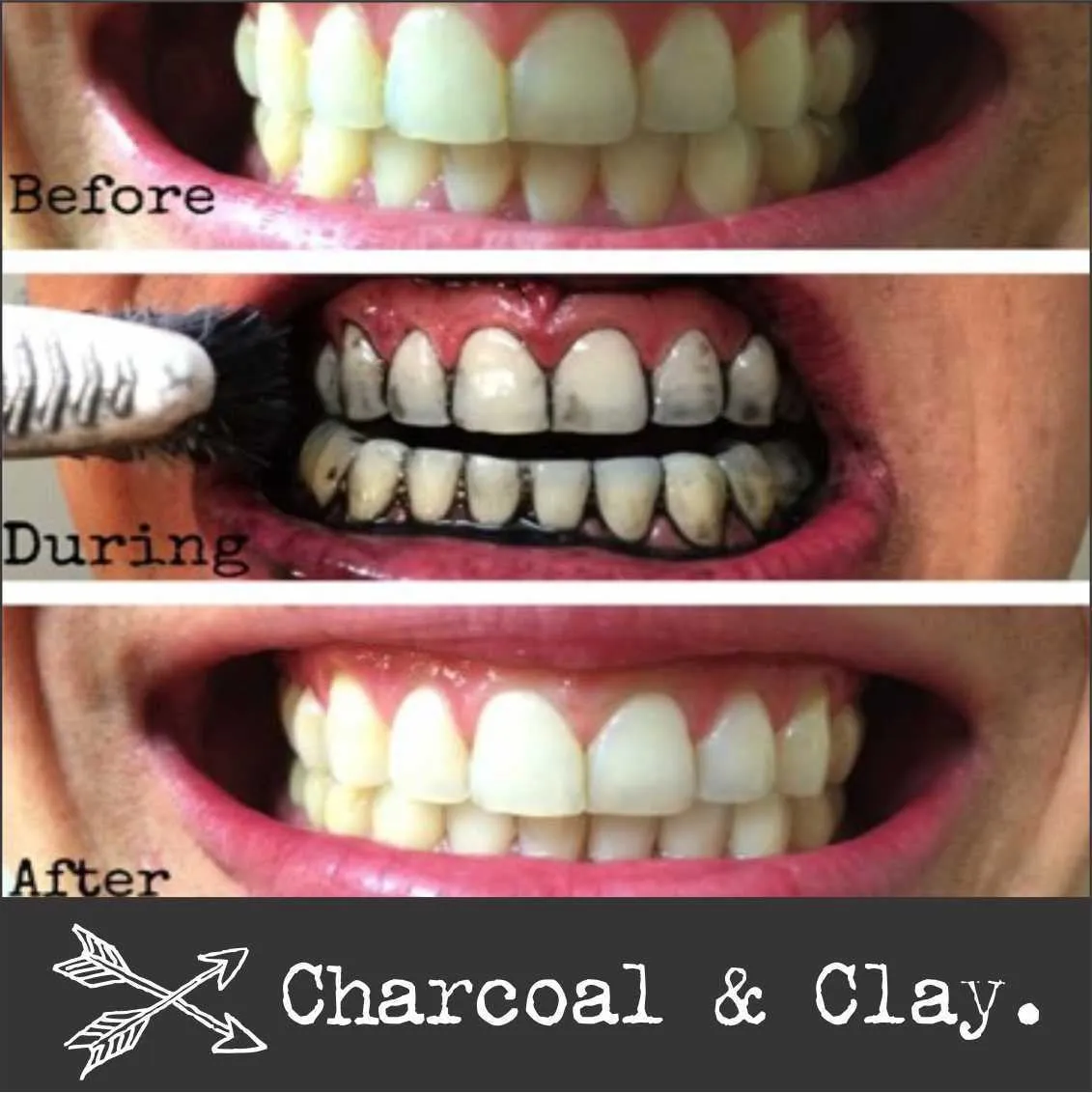What is Activated Charcoal?
Activated charcoal has surged in popularity as a natural teeth whitening agent. But what exactly is it? Unlike the charcoal briquettes used for grilling, activated charcoal is a fine, black powder made from various sources like coconut shells, wood, or peat. The ‘activation’ process involves heating the charcoal to high temperatures, which increases its porosity. This enhanced porosity is key to its effectiveness, as it allows the charcoal to trap and bind to substances, making it ideal for removing stains and impurities. It has been used for various purposes in medicine, including treating poisonings and overdoses. Its ability to absorb substances makes it a fascinating and useful material for a range of applications, including teeth whitening.
How Does Charcoal Whiten Teeth?
The teeth whitening properties of activated charcoal are primarily attributed to its absorptive qualities. The porous structure of activated charcoal allows it to bind to stains, tannins, and other surface impurities on your teeth. These impurities often result from consuming coffee, tea, wine, and certain foods. As you brush with activated charcoal, it gently scrubs away these stains, giving the appearance of whiter teeth. It is important to note that activated charcoal does not chemically alter the color of your teeth like some professional whitening treatments. Instead, it works by removing surface stains. This can lead to a brighter smile, but it may not significantly change the intrinsic color of your teeth. The abrasion from brushing with charcoal can also help to remove plaque and bacteria, promoting overall oral health.
Benefit 1 Charcoal for Teeth Whitening

One of the most cited benefits of using charcoal for teeth whitening is its natural approach. Many individuals prefer natural remedies over harsh chemical treatments, making activated charcoal an appealing option. Unlike some commercial whitening products that contain strong chemicals, activated charcoal is a less abrasive alternative. People are drawn to the fact that activated charcoal is made from natural sources like coconut shells. Moreover, some users report a noticeable difference in the brightness of their teeth after using charcoal regularly. This perceived benefit contributes to the widespread adoption of charcoal as a teeth-whitening method. The emphasis on natural ingredients resonates with consumers seeking safer and more holistic approaches to dental care. Using natural products often reduces the risk of adverse reactions and aligns with a growing trend towards health-conscious living. (Image: charcoal-teeth-whitening)
Benefit 2 Charcoal for Teeth Whitening
Another key benefit of charcoal for teeth whitening is its ability to remove surface stains. The porous nature of activated charcoal acts like a magnet, attracting and binding to staining compounds from food, drinks, and tobacco. Common culprits, such as coffee, tea, wine, and berries, often leave behind stubborn stains that dull the appearance of teeth. By brushing with charcoal, these stains are gently lifted away, revealing a brighter and more refreshed smile. Regular use of charcoal can help maintain this brighter appearance, preventing the buildup of new stains. This stain removal process is a significant advantage for those seeking a convenient and accessible way to enhance their smile. The effectiveness in combating everyday stains is a primary reason why charcoal remains a popular choice among teeth-whitening solutions. (Image: activated-charcoal)
Benefit 3 Charcoal for Teeth Whitening
Activated charcoal can also contribute to improved oral health. While primarily known for its whitening effects, charcoal can also help in removing plaque and bacteria from your teeth and gums. This removal can aid in reducing the risk of cavities and gum disease. Although more research is needed, some studies suggest that activated charcoal has antibacterial properties that may help to eliminate harmful bacteria in the mouth. Brushing with charcoal can, therefore, promote a cleaner and healthier oral environment, leading to fresher breath. While it is not a substitute for regular dental check-ups, the added benefit of promoting oral health is an attractive advantage for many users. This dual-action approach makes activated charcoal a more comprehensive oral care solution. (Image: teeth-whitening-benefits)
Benefit 4 Charcoal for Teeth Whitening

Activated charcoal is often readily accessible and affordable compared to other teeth-whitening options. Charcoal toothpaste and powders are widely available in drugstores, health food stores, and online retailers. The cost-effectiveness of activated charcoal makes it an attractive alternative to professional treatments. Moreover, it provides an accessible option for those who may not have immediate access to dental services. The convenience of incorporating charcoal into one’s daily routine is another key advantage. With minimal time commitment, users can easily integrate charcoal brushing into their existing oral hygiene practices. This ease of use contributes to its popularity as a practical and convenient solution. Its affordability and accessibility make charcoal a democratic choice for teeth whitening. (Image: charcoal-teeth-before-after)
Benefit 5 Charcoal for Teeth Whitening
Many users experience an immediate effect on the texture of their teeth. After brushing with activated charcoal, teeth often feel smoother and cleaner. This is due to the abrasive action of the charcoal, which helps to remove plaque and surface debris. While this effect is not directly related to whitening, it does contribute to a feeling of freshness and cleanliness. This can encourage better oral hygiene habits, leading to an improved overall oral health. The immediate textural benefits are particularly pleasing to users, as they can feel the positive effects of the product immediately. This instantaneous sensation can enhance the overall user experience, making charcoal a satisfying addition to the daily oral care routine. (Image: charcoal-teeth-before-after)
Potential Risks and Side Effects
While activated charcoal can offer certain benefits, it’s essential to be aware of potential risks and side effects. One of the primary concerns is its abrasiveness. Excessive or improper use of activated charcoal can wear down the enamel of your teeth, making them more susceptible to sensitivity and decay. Prolonged use may also cause your teeth to become more yellow over time, as the underlying dentin becomes more exposed. Another potential side effect is tooth sensitivity, as the abrasive nature of charcoal can irritate the gums and teeth. It is important to use activated charcoal sparingly and with care to mitigate these risks. Always consult with a dentist before incorporating charcoal into your oral hygiene routine, especially if you have pre-existing dental conditions. (Image: teeth-whitening-side-effects)
How to Use Charcoal for Teeth Whitening

Using activated charcoal for teeth whitening is relatively simple, but it is important to follow the recommended guidelines. You can find activated charcoal in powder or toothpaste form. For powder, gently wet your toothbrush and dip it into the charcoal powder. Brush your teeth for approximately two minutes using gentle, circular motions. After brushing, rinse your mouth thoroughly with water to remove any remaining charcoal particles. Some people also add a small amount of charcoal to their regular toothpaste to reduce the abrasion. It is recommended to use charcoal once or twice a week to minimize the risk of enamel wear. Always consult your dentist for personalized advice on the best way to incorporate activated charcoal into your routine. (Image: how-to-use-charcoal)
Alternatives to Charcoal for Whitening
If you’re looking for alternatives to activated charcoal for teeth whitening, several other options are available. Whitening toothpaste that contains peroxide can help remove stains and lighten teeth. Another popular option is over-the-counter whitening strips, which are easy to use and offer noticeable results. For more dramatic results, you might consider professional teeth whitening treatments performed by a dentist. These treatments often involve stronger bleaching agents and can deliver significant improvements in tooth color. Some natural alternatives to explore include oil pulling with coconut oil, which some people believe can improve oral health and whiten teeth. Consulting your dentist is essential to determining the best teeth whitening strategy for your individual needs and dental health. (Image: teeth-whitening-alternatives)
